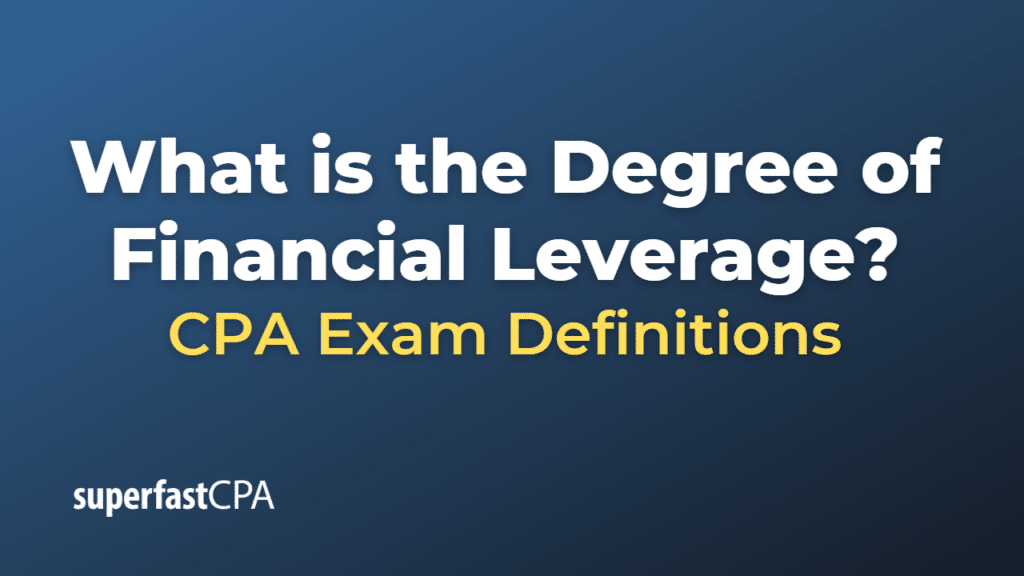Degree of Financial Leverage
The Degree of Financial Leverage (DFL) is a ratio that measures the sensitivity of a company’s earnings per share (EPS) to fluctuations in its operating income, as a result of changes in its capital structure. The DFL is used to assess the riskiness of a company’s capital structure—the mix of debt and equity financing it uses.
A high degree of financial leverage indicates that the company has a large amount of debt in its capital structure. In such a case, a small change in operating income can result in a large change in earnings per share, which can be beneficial in good times but harmful in bad. Conversely, a low degree of financial leverage means the company has more equity in its capital structure and is therefore less sensitive to changes in operating income.
The formula for calculating the Degree of Financial Leverage is:
\(\text{DFL} = \frac{\text{EBIT}}{\text{EBIT – Interest}} \)
Where:
- EBIT stands for Earnings Before Interest and Taxes, which is a measure of a company’s operating income.
- Interest is the interest expenses on the company’s debt.
Please note that financial leverage involves risk. While borrowing can magnify potential returns, it also increases the risk of insolvency if a company is unable to meet its financial obligations. Therefore, high financial leverage can lead to high earnings volatility.
Example of the Degree of Financial Leverage
Suppose we have a company named TechCorp. Let’s say that TechCorp has:
- Earnings Before Interest and Taxes (EBIT) of $500,000
- Interest Expenses of $50,000
We can use these numbers to calculate the Degree of Financial Leverage (DFL) using the formula:
\(\text{DFL} = \frac{\text{EBIT}}{\text{EBIT – Interest}} \)
Substituting the given values into the formula, we get:
\(\text{DFL} = \frac{\$500,000}{\$500,000 – \$50,000} = \frac{\$500,000}{\$450,000} = 1.11 \)
This means that TechCorp’s earnings per share (EPS) will change by 1.11 times the percentage change in its operating income (EBIT). In other words, if TechCorp’s operating income increases by 10%, its EPS would increase by 11.1% (1.11 times 10%). Similarly, if operating income decreases by 10%, the EPS would decrease by 11.1%.
This shows the magnifying effect of financial leverage on a company’s earnings. While this can lead to larger gains when times are good and operating income is rising, it can also lead to larger losses when times are bad. This is why financial leverage is often associated with increased risk.












